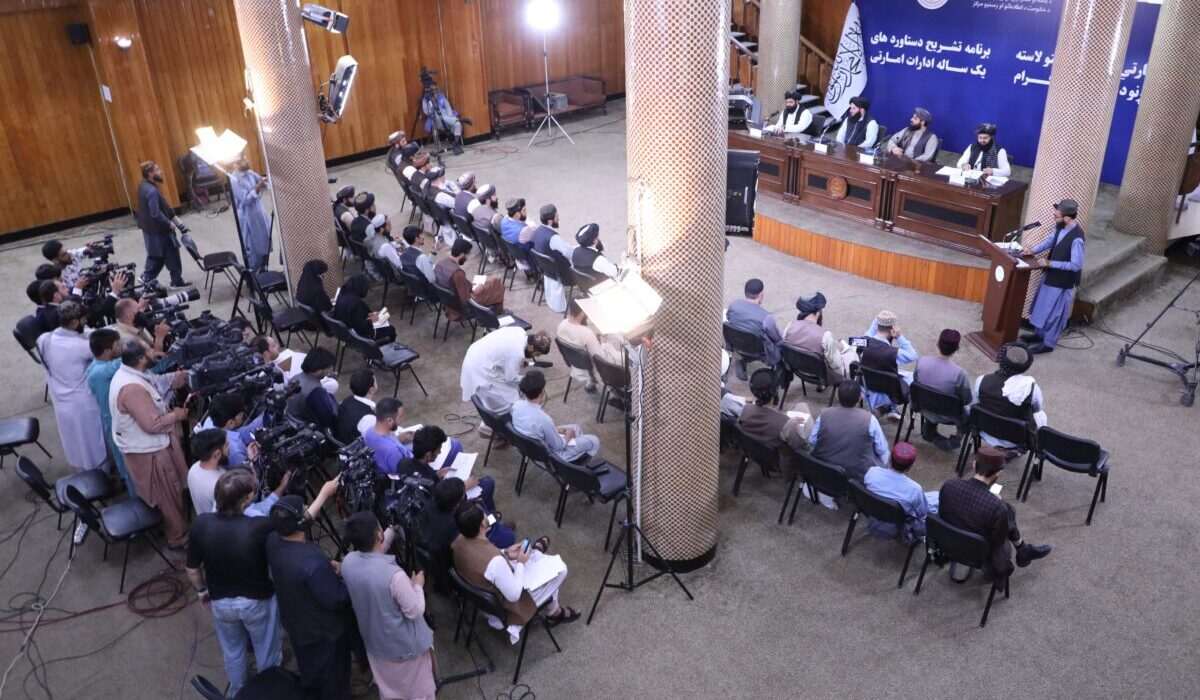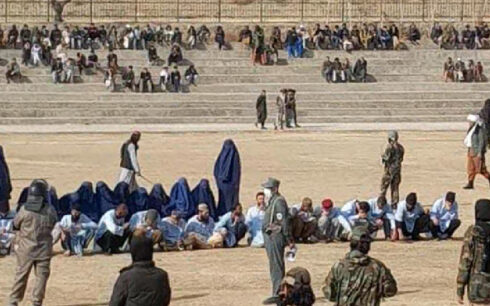Journalists and media advocates in Afghanistan have voiced alarm over the Taliban’s increasing restrictions on freedom of expression, including a ban on broadcasting images of living beings.
The measures, they say, amount to an effort to silence the country’s people and curtail press freedoms.
In the southern province of Kandahar, the Taliban banned the broadcast of such images roughly two months ago, according to local reports. Neighboring Helmand Province followed suit, with the Taliban-controlled Radio Television Afghanistan (RTA) ceasing the airing and filming of living beings.
Similar prohibitions have been reported in Nangarhar, where the Taliban-run RTA has not broadcast images of living beings for two days, as well as in Takhar, Badghis, and Khost provinces. The orders are said to stem from Taliban leader Hibatullah Akhundzada.
The restrictions have drawn sharp criticism from Afghan journalists, who say the rules make their work nearly impossible. “This action by the Taliban means silencing the voices of the Afghan people,” a journalist in Badghis Province said on the condition of anonymity, citing security concerns. “By doing so, the Taliban have stripped the people and journalists of their freedom of expression.”
Reporters Without Borders (RSF) has called on the Taliban to reverse these policies. In a statement, Célia Mercier, head of RSF’s South Asia Desk, decried the crackdown on the media, particularly in Khost Province, where three radio stations were reportedly shut down in recent weeks.
“Since their return to power in August 2021, the Taliban have been conducting a brutal crackdown on the Afghan media, stifling all independent voices and plunging the country into a silence fostered by fear,” Mercier said. “Their crackdown on Khost radio stations is a worrying sign that the ideologies inflicted on the media are hardening.”
RSF urged the Taliban’s Ministry of Information and Culture to allow shuttered radio stations in Khost to reopen and to respect the right to information. The advocacy group noted that in addition to banning images, Taliban authorities have imposed further repressive rules, barring music and prohibiting female listeners from calling in to radio programs.
The Taliban’s measures are part of broader restrictions introduced in August that have targeted various aspects of Afghan society, including the media and women.





